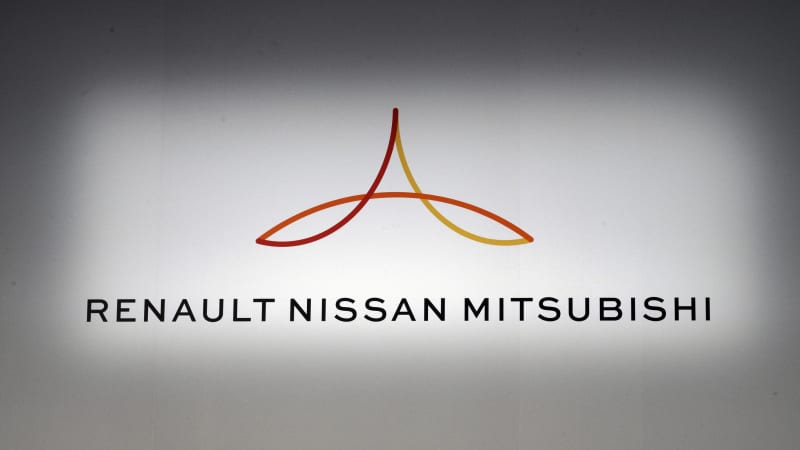
TOKYO — The auto alliance of Nissan and Renault said Wednesday it will be sharing more vehicle parts, technology and models to save costs as the industry struggles to survive the coronavirus pandemic.
Alliance Operating Board Chairman Jean-Dominique Senard said the group, which also includes smaller Japanese automaker Mitsubishi, will have each company focusing on geographic regions.
“There is no plan for a merger of our companies,” the chairman said. “Our model today is a very distinctive model … we don’t need a merger to be efficient.”
He stressed the alliance needs to adjust to the “unprecedented economic crisis,” to pursue efficiency and competitiveness, not sheer sales volumes.
“Now is the time to rebuild,” Senard said, making clear he believed the alliance remained strong.
All automakers are suffering from the pandemic, and scaling back or suspending production, but Nissan was reeling before the crisis struck from a scandal involving its former chairman, Carlos Ghosn.
Yokohama-based Nissan is due to report its annual results on Thursday and has forecast it will slip into its first yearly loss in 11 years.
Under the latest so-called leader-follower initiative, Nissan will focus on China, North America and Japan; Renault on Europe, Russia and South America and North Africa, and Mitsubishi on Southeast Asia and Oceania, for the benefit of the entire alliance.
Nissan Chief Executive Makoto Uchida said the alliance planned to pursue fiscal strength together.
“The synergy is huge,” he said.
The number of vehicles sharing the same platform will double by 2024, saving 2 billion euros ($2.2 billion), according to Senard.
The shared technology will also include electric cars and autonomous driving, platforms and car bodies, the executives said. Nissan is a leader in electric cars with its Leaf, but such technology will be available to the other alliance members, they said.
The companies gave few details of how the revamp would deliver in the short term, as the car industry grapples with the fallout from the coronavirus pandemic and pressure to develop less polluting vehicles.
They said in a joint statement that they aimed to produce nearly half of their vehicles under the new leader-follower approach by 2025 and hoped to cut investment per model in the scheme by up to 40%.
The range of vehicles they produce is expected to fall by 20% by 2025 though the firms did not say how many jobs would go as they shift production.
“The previous strategy was focused on growth and volume … we focused as much as possible on differentiation in models to achieve growth,” Alliance General Secretary Hadi Zablit told reporters. “Today we have a much higher scope of sharing between the brands.”
Renault owns 43% of Nissan, while Nissan owns 15% of Renault. The government of France owns 15% of Renault.
France’s government announced on Tuesday a bailout of more than 8 billion euros ($8.8 billion) for the nation’s auto industry. A 5-billion-euro ($5.5 billion) French government loan guarantee is under discussion for Renault. The measures include subsidies to encourage people to buy low-emissions models.
Analysts say automakers, including Nissan, need to slash costs.
“Car companies find themselves in extraordinary times right now due to the COVID-19 crisis and the impact of lockdowns and economic recession on sales. A key theme emerging in companies’ response to the crisis is the need to focus on core and profitable activities,” said David Leggett of analytics company GlobaData.
Nissan’s brand suffered from the arrest of Ghosn in November 2018 on suspicion of various kinds of financial misconduct, including under-reporting promised compensation and misusing Nissan money.
Ghosn had been sent in by Renault in 1999, to save Nissan from the brink of bankruptcy. He insisted on his innocence from the start and accused some at Nissan of concocting allegations to block a merger with Renault.
Preparations were underway for a courtroom showdown when Ghosn fled to Lebanon while out on bail in late 2019. The Brazilian-born Ghosn holds Lebanese citizenship and Lebanon does not have an extradition treaty with Japan.
U.S. authorities recently arrested two Americans accused of helping Ghosn escape, reportedly by secreting him in a box for musical instruments flown in a private jet. Japanese prosecutors issued arrest warrants for them last year and are seeking their extradition.
Before his downfall, Ghosn was a revered figure in the auto industry, especially in Japan, where he was a corporate superstar.
Material from Reuters was used in this report.
Related Video:
